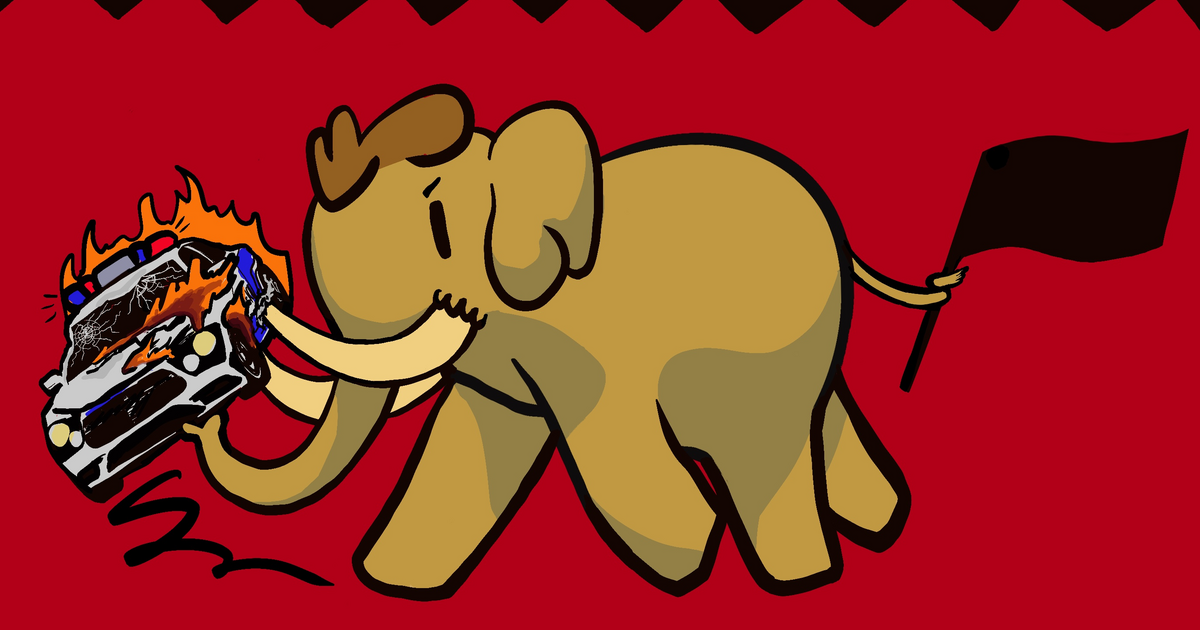DoomsdaysCW<p>Discrimination against trans Olympians has roots in <a href="https://kolektiva.social/tags/NaziGermany" class="mention hashtag" rel="tag">#<span>NaziGermany</span></a></p><p>The forgotten Olympic history of <a href="https://kolektiva.social/tags/TransAthletes" class="mention hashtag" rel="tag">#<span>TransAthletes</span></a>.</p><p>by Alex Abad-Santos<br />Updated Aug 1, 2024</p><p>Excerpt: "Outside of the [Olympic] Games, trans people face so much backlash, often for simply existing. The conversation around sports is particularly fraught, from children’s athletics right up through the pros. Despite the International Olympic Committee vowing to be more inclusive, the future for trans athletes is unclear.</p><p>"It all raises the question: How did we get to this point, and did it always have to be this way?</p><p>"The answers found in historian and journalist <a href="https://kolektiva.social/tags/MichaelWaters" class="mention hashtag" rel="tag">#<span>MichaelWaters</span></a>’s The Other Olympians: <a href="https://kolektiva.social/tags/Fascism" class="mention hashtag" rel="tag">#<span>Fascism</span></a>, <a href="https://kolektiva.social/tags/Queerness" class="mention hashtag" rel="tag">#<span>Queerness</span></a>, and the Making of Modern Sports might be surprising. Waters’s book traces the emergence of <a href="https://kolektiva.social/tags/Zden%C4%9BkKoubek" class="mention hashtag" rel="tag">#<span>ZdeněkKoubek</span></a>, a track and field star representing the country formerly known as Czechoslovakia who, at 21, won two medals — a gold in the 800m and a bronze in the long jump — at the 1934 Women’s World Games. (The Women’s World Games was the precursor to women competing at the Olympics). In 1935, Koubek announced that he would be living life as a man and swiftly became an international celebrity.</p><p>"Perhaps the most intriguing facet to Koubek’s story was in the public response. Koubek was more welcomed and celebrated than we might imagine. There was an open-mindedness and empathy to the reception of Koubek and his gender identity and expression in the 1930s.</p><p>"Waters also pinpoints where and when that changed, specifically at the <a href="https://kolektiva.social/tags/1936Olympics" class="mention hashtag" rel="tag">#<span>1936Olympics</span></a> in <a href="https://kolektiva.social/tags/Nazi" class="mention hashtag" rel="tag">#<span>Nazi</span></a> Germany. Armed with a propensity for <a href="https://kolektiva.social/tags/eugenics" class="mention hashtag" rel="tag">#<span>eugenics</span></a>, <a href="https://kolektiva.social/tags/GenderAnxiety" class="mention hashtag" rel="tag">#<span>GenderAnxiety</span></a>, and a startling lack of scientific evidence, a small set of Nazi officials influenced the International Olympic Committee into <a href="https://kolektiva.social/tags/GenderSurveillance" class="mention hashtag" rel="tag">#<span>GenderSurveillance</span></a> and <a href="https://kolektiva.social/tags/TransPanic" class="mention hashtag" rel="tag">#<span>TransPanic</span></a> — stuff that eerily mirrors the <a href="https://kolektiva.social/tags/transphobic" class="mention hashtag" rel="tag">#<span>transphobic</span></a> attacks that athletes, cis and trans alike, face today."</p><p>Read more:<br /><a href="https://www.vox.com/culture/364032/trans-athletes-olympics-2024?utm_source=pocket-newtab-en-us" target="_blank" rel="nofollow noopener noreferrer" translate="no"><span class="invisible">https://www.</span><span class="ellipsis">vox.com/culture/364032/trans-a</span><span class="invisible">thletes-olympics-2024?utm_source=pocket-newtab-en-us</span></a><br /><a href="https://kolektiva.social/tags/TransgenderAthletes" class="mention hashtag" rel="tag">#<span>TransgenderAthletes</span></a> <a href="https://kolektiva.social/tags/SexTesting" class="mention hashtag" rel="tag">#<span>SexTesting</span></a> <br /><a href="https://kolektiva.social/tags/TransRightsAreHumanRights" class="mention hashtag" rel="tag">#<span>TransRightsAreHumanRights</span></a></p>
Recent searches
No recent searches
Search options
Not available on kolektiva.social.
kolektiva.social is one of the many independent Mastodon servers you can use to participate in the fediverse.

Kolektiva is an anti-colonial anarchist collective that offers federated social media to anarchist collectives and individuals in the fediverse. For the social movements and liberation!
Administered by:
Server stats:
3.6Kactive users
kolektiva.social: About · Profiles directory · Privacy policy
Mastodon: About · Get the app · Keyboard shortcuts · View source code · v4.3.7
#MichaelWaters
0 posts · 0 participants · 0 posts today
ExploreLive feeds
Mastodon is the best way to keep up with what's happening.
Follow anyone across the fediverse and see it all in chronological order. No algorithms, ads, or clickbait in sight.
Create accountLoginDrag & drop to upload

